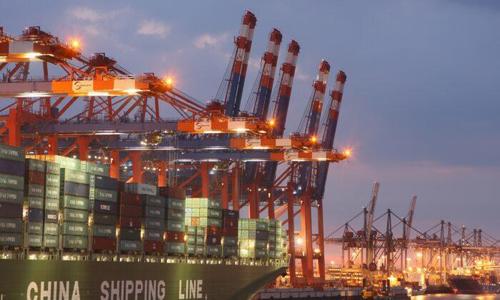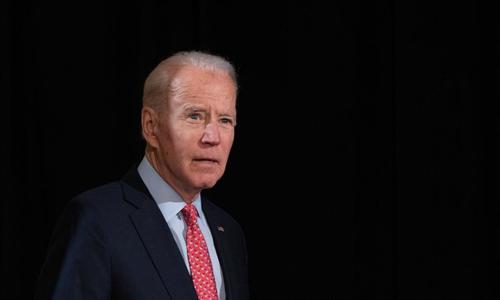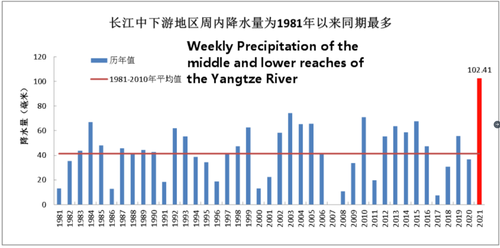Authored by John W. Whitehead & Nisha Whitehead via The Rutherford Institute,
“The Fourth Amendment was designed to stand between us and arbitrary governmental authority. For all practical purposes, that shield has been shattered, leaving our liberty and personal integrity subject to the whim of every cop on the beat, trooper on the highway and jail official. The framers would be appalled.”
– Herman Schwartz, The Nation
We’ve all been there before.
You’re driving along and you see a pair of flashing blue lights in your rearview mirror. Whether or not you’ve done anything wrong, you get a sinking feeling in your stomach.
You’ve read enough news stories, seen enough headlines, and lived in the American police state long enough to be anxious about any encounter with a cop that takes place on the side of the road.
For better or worse, from the moment you’re pulled over, you’re at the mercy of law enforcement officers who have almost absolute discretion to decide who is a threat, what constitutes resistance, and how harshly they can deal with the citizens they were appointed to “serve and protect.”

This is what I call “blank check policing,” in which the police get to call all of the shots.
So if you’re nervous about traffic stops, you have every reason to be.
Trying to predict the outcome of any encounter with the police is a bit like playing Russian roulette: most of the time you will emerge relatively unscathed, although decidedly poorer and less secure about your rights, but there’s always the chance that an encounter will turn deadly.
Try to assert your right to merely ask a question during a traffic stop and see how far it gets you.
Juanisha Brooks—black, 34 years old and on her way home at 2:20 am—was pulled over, handcuffed, arrested and charged with resisting arrest, eluding the police, reckless driving and failure to use headlights after repeatedly asking police why she had been stopped. When Brooks—a Department of Defense employee—filed a complaint, prosecutors conceded that the traffic stop had been carried out without “proper legal basis” and dropped all charges.
Caron Nazario, a uniformed Army officer returning home from his duty station, was stopped for not having a rear license plate (his temporary plates were taped to the rear window of his new SUV). Nazario, who is Black and Latino, pulled over at a well-lit gas station only to be pepper sprayed, held at gunpoint, beaten and threatened with execution.
Zachary Noel was tasered by police and charged with resisting arrest after he questioned why he was being ordered out of his truck during a traffic stop. “Because I’m telling you to,” the officer replied before repeating his order for Noel to get out of the vehicle and then, without warning, shooting him with a taser through the open window.
Despite complying with all police orders when ordered to show his identification and exit his parked vehicle, Jeriel Edwards was subjected to excessive force and brutality, including being thrown to the ground, tasered, and placed in a chokehold that rendered him unconscious and required his hospitalization for three days. Although dash cam video of the arrest confirms that Edwards was peaceful, did not defy police orders, and did nothing to provoke police, a federal court ruled that Edwards’ trouble understanding police directions during the encounter constituted “resistance” that justified the force used by the four police officers involved in the violent arrest. Edwards is African-American.
Gregory Tucker, also black, was stopped by police for a broken taillight, only to be thrown to the ground, beaten and punched in the face and body more than 20 times, then arrested and hospitalized for severe injuries to his face and arm, all for allegedly “resisting arrest” by driving to a safe, well-lit area in front of his cousin’s house before stopping.
No wonder Americans are afraid of getting pulled over by police.
Mind you, all of these individuals complied with police. They just didn’t do it fast enough to suit their purposes.
At a time when police can do no wrong—at least in the eyes of the courts, police unions and politicians dependent on their votes—and a “fear” for officer safety is used to justify all manner of police misconduct, “we the people” are at a severe disadvantage.
Add a traffic stop to the mix, and that disadvantage increases dramatically.
According to the Justice Department, the most common reason for a citizen to come into contact with the police is being a driver in a traffic stop.
On average, one in 10 Americans gets pulled over by police.
According to data collected under Virginia’s new Community Policing Act, black drivers are almost two times more likely than white drivers to be pulled over by police and three times more likely to have their vehicles searched. As the Washington Post concludes, “‘Driving while black’ is, indeed, a measurable phenomenon.”
Historically, police officers have been given free range to pull anyone over for a variety of reasons.
This free-handed approach to traffic stops has resulted in drivers being stopped for windows that are too heavily tinted, for driving too fast, driving too slow, failing to maintain speed, following too closely, improper lane changes, distracted driving, screeching a car’s tires, and leaving a parked car door open for too long.
Motorists can also be stopped by police for driving near a bar or on a road that has large amounts of drunk driving, driving a certain make of car (Mercedes, Grand Prix and Hummers are among the most ticketed vehicles), having anything dangling from the rearview mirror (air fresheners, handicap parking permits, toll transponders or rosaries), and displaying pro-police bumper stickers.
Incredibly, a federal appeals court actually ruled unanimously in 2014 that acne scars and driving with a stiff upright posture are reasonable grounds for being pulled over. The Fifth Circuit Court of Appeals ruled that driving a vehicle that has a couple air fresheners, rosaries and pro-police bumper stickers at 2 MPH over the speed limit is suspicious, meriting a traffic stop.
Equally appalling, in Heien v. North Carolina, the U.S. Supreme Court—which has largely paved the way for the police and other government agents to probe, poke, pinch, taser, search, seize, strip and generally manhandle anyone they see fit in almost any circumstance—allowed police officers to stop drivers who appear nervous, provided they provide a palatable pretext for doing so.
Justice Sonia Sotomayor was the lone objector in the case. Dissenting in Heien, Sotomayor warned, “Giving officers license to effect seizures so long as they can attach to their reasonable view of the facts some reasonable legal interpretation (or misinterpretation) that suggests a law has been violated significantly expands this authority… One wonders how a citizen seeking to be law-abiding and to structure his or her behavior to avoid these invasive, frightening, and humiliating encounters could do so.”
In other words, drivers beware.
Traffic stops aren’t just dangerous. They can be downright deadly.
Remember Walter L. Scott? Reportedly pulled over for a broken taillight, Scott—unarmed—ran away from the police officer, who pursued and shot him from behind, first with a Taser, then with a gun. Scott was struck five times, “three times in the back, once in the upper buttocks and once in the ear — with at least one bullet entering his heart.”
Samuel Dubose, also unarmed, was pulled over for a missing front license plate. He was reportedly shot in the head after a brief struggle in which his car began rolling forward.
Levar Jones was stopped for a seatbelt offense, just as he was getting out of his car to enter a convenience store. Directed to show his license, Jones leaned into his car to get his wallet, only to be shot four times by the “fearful” officer. Jones was also unarmed.
Bobby Canipe was pulled over for having an expired registration. When the 70-year-old reached into the back of his truck for his walking cane, the officer fired several shots at him, hitting him once in the abdomen.
Dontrell Stevens was stopped “for not bicycling properly.” The officer pursuing him “thought the way Stephens rode his bike was suspicious. He thought the way Stephens got off his bike was suspicious.” Four seconds later, sheriff’s deputy Adams Lin shot Stephens four times as he pulled out a black object from his waistband. The object was his cell phone. Stephens was unarmed.
Sandra Bland, pulled over for allegedly failing to use her turn signal, was arrested after refusing to comply with the police officer’s order to extinguish her cigarette and exit her vehicle. The encounter escalated, with the officer threatening to “light” Bland up with his taser. Three days later, Bland was found dead in her jail cell. “You’re doing all of this for a failure to signal?” Bland asked as she got out of her car, after having been yelled at and threatened repeatedly.
Keep in mind, from the moment those lights start flashing and that siren goes off, we’re all in the same boat. However, it’s what happens after you’ve been pulled over that’s critical.
Survival is key.
Technically, you have the right to remain silent (beyond the basic requirement to identify yourself and show your registration). You have the right to refuse to have your vehicle searched. You have the right to film your interaction with police. You have the right to ask to leave. You also have the right to resist an unlawful order such as a police officer directing you to extinguish your cigarette, put away your phone or stop recording them.
However, there is a price for asserting one’s rights. That price grows more costly with every passing day.
If you ask cops and their enablers what Americans should do to stay alive during encounters with police, they will tell you to comply, cooperate, obey, not resist, not argue, not make threatening gestures or statements, avoid sudden movements, and submit to a search of their person and belongings.
Unfortunately, there are no longer any fail-safe rules of engagement for interacting with the police.
In the American police state, compliance is no guarantee that you will survive an encounter with the police with your life and liberties intact.
Every day we hear about situations in which unarmed Americans complied and still died during an encounter with police simply because they appeared to be standing in a “shooting stance” or held a cell phone or a garden hose or carried around a baseball bat or answered the front door or held a spoon in a threatening manner or ran in an aggressive manner holding a tree branch or wandered around naked or hunched over in a defensive posture or made the mistake of wearing the same clothes as a carjacking suspect (dark pants and a basketball jersey) or dared to leave an area at the same time that a police officer showed up or had a car break down by the side of the road or were deaf or homeless or old.
More often than not, it seems as if all you have to do to be shot and killed by police is stand a certain way, or move a certain way, or hold something—anything—that police could misinterpret to be a gun, or ignite some trigger-centric fear in a police officer’s mind that has nothing to do with an actual threat to their safety.
Now you can make all kinds of excuses to justify these shootings, and in fact that’s exactly what you’ll hear from politicians, police unions, law enforcement officials and individuals who are more than happy to march in lockstep with the police.
However, to suggest that a good citizen is a compliant citizen and that obedience will save us from the police state is not only recklessly irresponsible, but it is also deluded and out of touch with reality.
To begin with, and most importantly, Americans need to know their rights when it comes to interactions with the police, bearing in mind that many law enforcement officials are largely ignorant of the law themselves.
A good resource is The Rutherford Institute’s “Constitutional Q&A: Rules of Engagement for Interacting with Police.”
In a nutshell, the following are your basic rights when it comes to interactions with the police as outlined in the Bill of Rights:
You have the right under the First Amendment to ask questions and express yourself. You have the right under the Fourth Amendment to not have your person or your property searched by police or any government agent unless they have a search warrant authorizing them to do so. You have the right under the Fifth Amendment to remain silent, to not incriminate yourself and to request an attorney. Depending on which state you live in and whether your encounter with police is consensual as opposed to your being temporarily detained or arrested, you may have the right to refuse to identify yourself. Not all states require citizens to show their ID to an officer (although drivers in all states must do so).
As a rule of thumb, you should always be sure to clarify in any police encounter whether or not you are being detained, i.e., whether you have the right to walk away. That holds true whether it’s a casual “show your ID” request on a boardwalk, a stop-and-frisk search on a city street, or a traffic stop for speeding or just to check your insurance. If you feel like you can’t walk away from a police encounter of your own volition—and more often than not you can’t, especially when you’re being confronted by someone armed to the hilt with all manner of militarized weaponry and gear—then for all intents and purposes, you’re essentially under arrest from the moment a cop stops you. Still, it doesn’t hurt to clarify that distinction.
While technology is always going to be a double-edged sword, with the gadgets that are the most useful to us in our daily lives—GPS devices, cell phones, the internet—being the very tools used by the government to track us, monitor our activities, and generally spy on us, cell phones are particularly useful for recording encounters with the police and have proven to be increasingly powerful reminders to police that they are not all powerful.
Knowing your rights is only part of the battle, unfortunately.
As I make clear in my book Battlefield America: The War on the American People, the hard part comes in when you have to exercise those rights in order to hold government officials accountable to respecting those rights.


















